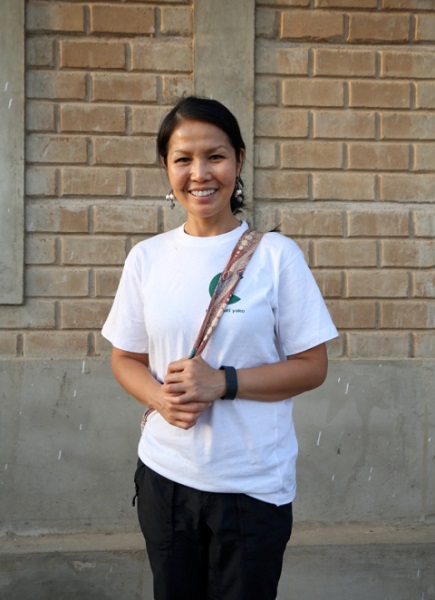 March 28, 2018 — Health care workers across the globe come in contact with victims of sex trafficking constantly, but may not know it.
March 28, 2018 — Health care workers across the globe come in contact with victims of sex trafficking constantly, but may not know it.
Recognizing victims and helping them without endangering them is one of the topics on tap at the CSU Channel Islands (CSUCI) First Annual Global Health Symposium on Saturday, April 7 from 9 to 3 p.m.
The symposium will take place in CSUCI’s Grand Salon and is open to anyone interested in global health issues. CSUCI students, faculty and staff are free, non-CSUCI students are $10 and admission for the general public is $30.
“We will talk about infectious diseases, improving health outcomes, heart disease, diabetes stroke, childbirth outcomes,” said symposium faculty organizer Assistant Professor of Nursing LaSonya Davis, DNP (Doctor of Nursing Practice). “We are also going to have one of our speakers talk about interpersonal violence and human trafficking.”
The aim is to provide CSUCI and other undergraduate/graduate nursing and allied health major students with the opportunity to engage in scholarly discussions and learning activities with population/global health experts and emerging academic scholars.
The morning keynote speakers are identical twins Carol and Carolyn Bloch, who hold doctoral degrees in Nursing. They are both transcultural nurse scholars, nurse educators and transcultural/diversity consultants.
With advisory and educational experience in Mexico and Venezuela, they specialize in health care and cultural differences in the effective delivery of care. The Blochs will discuss culturally sensitive ways to work with patients from different countries.
 The afternoon keynote speaker is Assistant Dean for Global Health and Innovation for the College of Graduate Nursing at Western University of Health Sciences in Pomona, California Ivy Tuason, who holds a Ph.D. in Nursing with a concentration in Community & Global Health.
The afternoon keynote speaker is Assistant Dean for Global Health and Innovation for the College of Graduate Nursing at Western University of Health Sciences in Pomona, California Ivy Tuason, who holds a Ph.D. in Nursing with a concentration in Community & Global Health.
Tuason has run clinics in Haiti, Nicaragua and Vietnam and has worked with vulnerable populations in the city of Pomona on issues such as nutrition and chronic disease management.
“She’ll be talking about her work with the albino population in Tanzania,” Davis said. “They are at risk as some people believe they are a lucky charm and they will hunt and maim them by cutting off body limbs although the government tries to protect them. She has been traveling to Tanzania and doing clinical care with that population. It really is an issue of social justice and humanity.”
There will be breakout sessions between the presentations led by nursing students with different areas of expertise.
Nursing graduate student Melanie Cross, who is earning her Doctor of Nursing Practice, will be leading one of the sessions. Cross is doing her thesis on human trafficking and has run across some startling statistics in the course of her research.
“I am going to talk about the prevalence of human trafficking and its intersection with health care,” Cross said. “Data shows that 87 percent of domestic sex trafficking victims came into contact with health care providers but were never identified.”
“We will talk about special communication techniques and resources,” Cross said. “The goal of interacting with potential human trafficking victims is not the details of their exploitation, but rather safety for both provider and victim. Trafficking happens in a process and recovery happens in a process.”
Cross and Davis worked together to organize the symposium, which was created and sponsored by the CSUCI Student Nurses’ Association and the Nursing Honor Society.
Licensed professionals will earn 4.5 continuing education units (CEU)s for attending.
